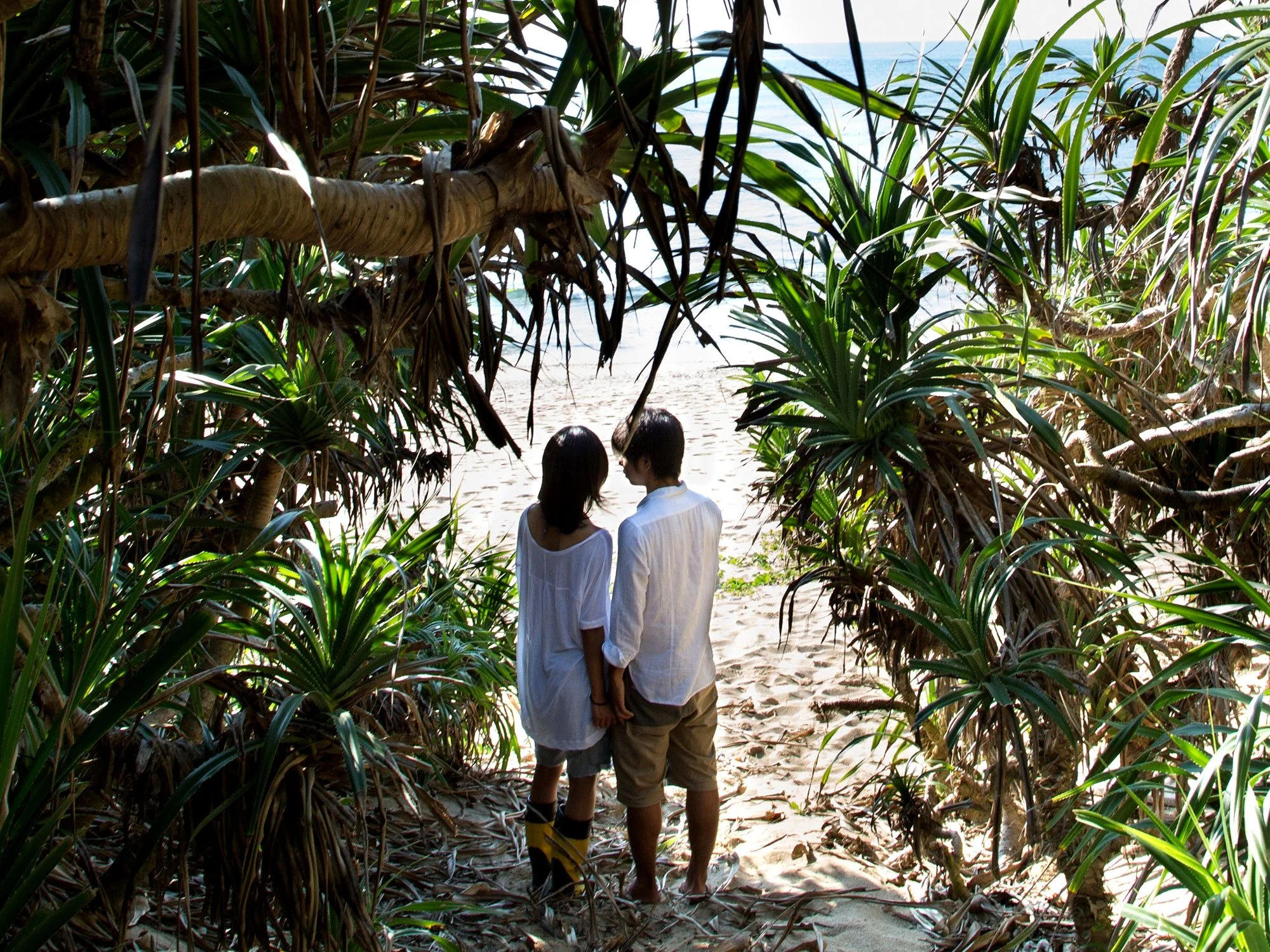Still The Water: A Typhoon, Grief, Young Love and Less Than Meets the Eye
By Liam Lacey
Rating: C
Naomi Kawase is Japan’s best-known female director, a creator of distinctive documentary-style fictions that are suffused with images of clouds, overhead shots of tree canopies, and moving water that surround tales of grief and ruptured families.
Characterized by a melancholy quality known in Japan as mono no aware (literally, “the pathos of things”), her eco-friendly meditative films have generally been embraced by festival programmers and critics, but with some resistance. The slow-cinema tranquility can feel soporific, the nature-idealization too New Agey, and the characters’ philosophical dialogue banal.
Those negative qualities might explain why Still The Water is only now getting a North America release, nine years after it made its debut in competition at Cannes to mostly lacklustre reviews. (Though the film seemed like a setback at the time, Kawase has made four fiction films since then, as well as the official documentary of the Tokyo Olympics).
Set on a semi-tropical island of Amami-Oshima, the film follows the fledgling relationship a teen-aged couple, Kaito (Nijirô Murakami) and Kyoko (Jun Yoshinaga, aka Junko Abe).
One night, after a typhoon, Kaito goes to the beach for a rendezvous with Kyoto. But before she arrives, he witnesses a naked dead man with a tattooed back floating on the waves.
The next morning, the island is abuzz with news of the discovery. This would seem to set us up for a mystery that, unexpectedly, never materializes. Instead, it’s an occasion to contemplate life’s fragility and subservience to nature.
At first, Kaito and Kyoto wouldn’t seem to have much in common. He’s a sullen introvert who’s afraid of the ocean and she’s an extroverted free spirit and water nymph.
She loves the water so much, she cavorts under the waves dressed in her schoolgirl uniform, popping up to visit a friendly old fisherman, Kamejiro (Fujio Tokita), who muses about age and the cycle of nature. The old man seems somewhat less benign when we see him trussing a goat upside down, to cut its throat and watch it bleed out.
What the couple have in common is the shared experience of grief. Kaito, is the unhappy child of divorce, the resentful child of a single mother Misaki (Makiko Watanabe) who works long hour in a restaurant and leaves instructions for Kaito to get his dinner. Dad has found a new woman in Tokyo, where he works as a tattooist.
Kyoto’s issues are more dire. Her beatific mother, Isa (Miyuki Matsuda), a shaman or spiritual leader, is in the hospital with a a terminal illness. The young couple’s conversations about Isa’s illness are awkward, like a series of short telegrams, delivered between pauses long enough to check your texts:
Kyoto: “Why do people live and die?
Kaito: “Mmm. I don’t know.”
Kyoto: “There is no reason.”
Kaito: “But your mother is a shaman, right.”
Kyoto: “She is.”
Kaito: “Aren’t shamans like gods?”
Kyoto: “Mmm.”
Kaito: “She won’t die.”
Predictably, Isa, who places herself as “on the threshold between gods and men”, does not get better.
Before she goes, she leaves Kyoto with a few cryptic messages: “Whether it be serenity or sorrow, neither one can be measured,” and “Gods are gods and men are men. Whoever it is, I will serve them.”
Isa comes home from the hospital for her final days, tended by her snack-bar-owning, surfer husband, Tetsu (Tetta Sugimoto), who makes sure she has sight lines to an ancient banyan tree, with which she has a mystical connection.
Her final hours are full of love, if not exactly peace: The occasion occasions a village celebration, with singing and dancing and twanging instruments.
Meanwhile, Kaito takes a trip to Tokyo to visit his father, the easy-going Atsushi (Jun Murakami), to confront him about the divorce. Dad blames it all on fate, and claims he feels more connected to his ex when he’s far away from her. He even pulls out that old absent dad standby: Your mom may not be my wife, but you’ll always be my son.
Kaiko returns to the island, we see more long takes of waves whooshing, while overhead shots show the carpet of green trees. The characters continue to speak in awkward dialogue, as Kaiko struggles with his mummy issues and Kyoto pushes toward adulthood.
While no one can expect answers to the big questions the film circles around, for a film of such solemnity, Still the Water ends up feeling awfully pat. Kawase’s attempt at a healing, nature-loving cathartic conclusion comes across as campy, as if a scene from The Blue Lagoon was accidentally attached to a Japanese nature documentary.
Still the Water. Directed, written by Naomi Kawase. Starring: Nijirô Murakami, Jun Yoshinaga, Miyuki Matsuda, Tetta Sugimoto, Makiko Watanabe, Jun Murakami. Still the Water is available on VOD, including Apple TV, on March 3.



